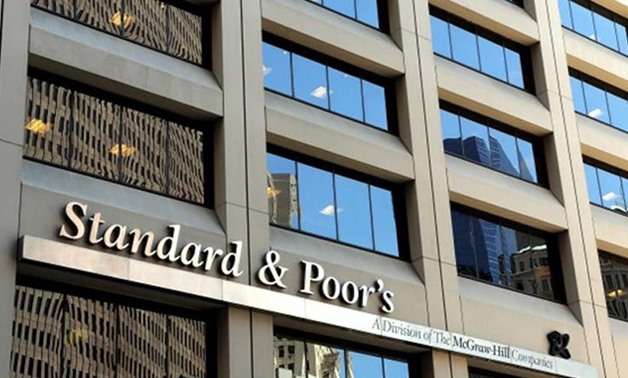
S&P Permises- Reuters photo
Standard & Poor’s affirmed Egypt’s long- and short-term sovereign credit ratings at B- and B, respectively, with a stable outlook, the international credit rating agency announced last May. Improvements on the security and power supply fronts, more capital flows and market competitiveness have prompted S&P to anticipate real GDP growth rate at 4% until 2020.
S&P Egypt analyst Nourredine Lafhel speaks to Business Today Egypt about the agency’s outlook on the local economy and why they support the government’s fiscal policy, the value-added tax (VAT) application, interest rates hikes and international bonds.
Do you think Egypt’s credit rating will improve upon adoption of the new investment law and the industrial permits act?
We can’t expect an immediate impact on the economy as the markets become very competitive, but of course working to attract foreign direct investments will be positive for economic growth and job creation over the medium term. In our latest projection for Egypt in May, we predicted Egypt’s real GDP to keep growing at a rate of 4% over the period between 2017 and 2020, but now we think there is a potential for the country to attain a growth rate higher than that.
How do you review Egypt’s inflation rate? Is it going to fall as per the government’s expectations?
The inflation rate in Egypt has started to decline on the month-on-month level, after it recorded a 30-year-high record in April due to an inflation overshoot that came as a result of the flotation of the Egyptian pound in November 2016. But the US dollar has now stabilized, so the impact has already been reflected. Of course there will be an impact as a result of the full application of the VAT and higher fuel prices, but we expect inflation rates to start easing by the end of 2017 or early 2018, although it will remain in double digits.
Speaking about the VAT, to what extent would this affect the credit rating of Egypt?
Increasing the VAT from 13% to 14% would boost budget revenues, help in fiscal consolidation and push fiscal deficit downwards from 12% of GDP in 2015 to around 7% to 8% of GDP by 2020. The VAT shows that the Egyptian government is committed to introducing revenue-enhancing measures and reducing public spending.
How do you see the latest interest rate increases by the Central Bank of Egypt; will they help in curbing inflation?
Introducing higher interest rates will have an impact on the cost of doing business and the cost of government debt, in addition to harder influence on consumers and entrepreneurs as well. But these high interest rates will attract more inflows.
How do you evaluate the influx of foreign investment in the government’s debt tools, specifically the treasury bills?
The flotation of the Egyptian pound looked very attractive for investors who consider investing in bonds, but these tools are volatile. The government has to keep investors confident in the economy and the reform measures to maintain the influx. On the other hand, it is also positive for the economy as it allows the banks to lend more to the private sector. For the government, the cost of borrowing through these tools is less than borrowing domestically from banks.
Do you think the US dollar exchange rate against the Egyptian pound could drop to LE 16 over this fiscal year as the government estimates?
As long as there is a budget deficit, the local currency will still be under pressure, but the US dollar exchange rate will range between LE 16 and LE 18, based on inflows of foreign currency.
And how do you assess removing the cap on international foreign currency transfers; does it affect the exchange rate?
Removing the cap on international transfers is a move in the right direction. It matches plans to remove all restrictions with regards to the foreign currency. Improving the liquidity will help stabilize the exchange rate and can even lower it.
What do you think is the most urgent matter that the government needs to attend to on the short term?
Egypt should stick to the International Monetary Fund (IMF) program as it makes Egypt a desirable destination to foreign investments.
What are the factors that affect Egypt’s credit rating?
S&P looks into the political situation of countries when assessing their credit rating as governance and stability play a major role in determining the country’s ability to offer economic stability. We also take into consideration the size of the gross domestic product, as well as the external assessment and external debt position. We study the potential economic growth over the next 12 months to evaluate whether the government will be able to repay its borrowers. We look into fiscal balances such as the budget deficit, debt metrics and the cost of services, in addition to the country’s general economic strategy.
Will S&P consider its credit rating or outlook for Egypt?
S&P has a stable outlook for Egypt, but the credit rating will not change over the coming 12 months. If the economic growth rate becomes higher than our expectations, then the outlook will be positive over the near term.

Comments
Leave a Comment